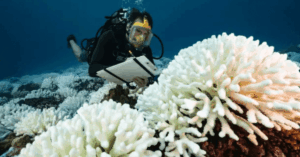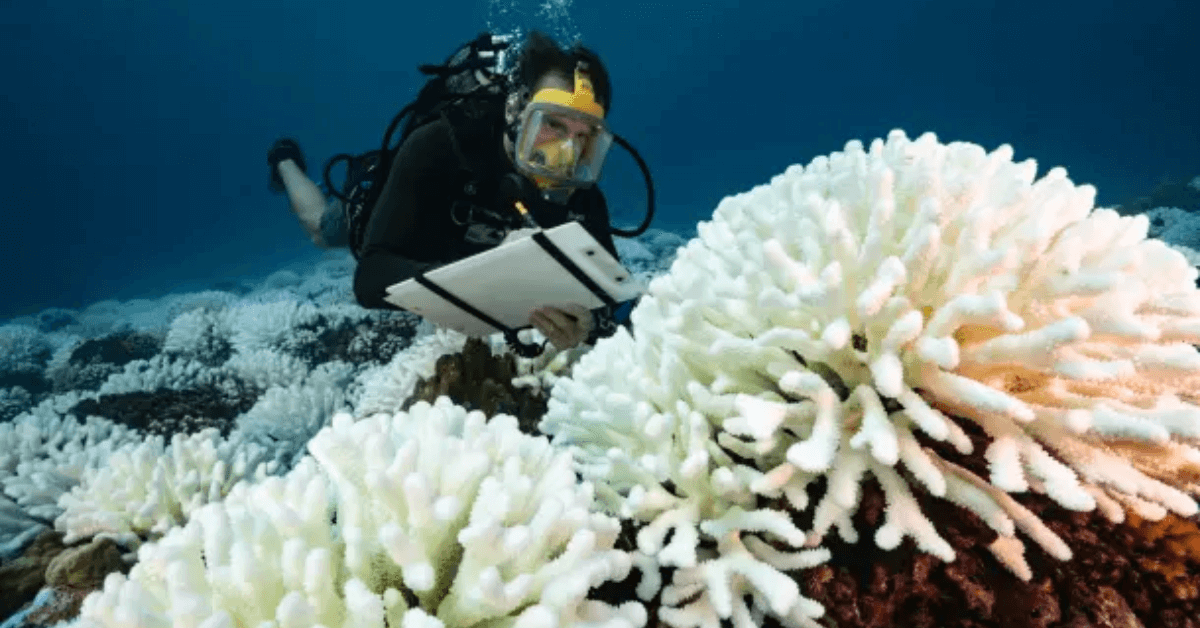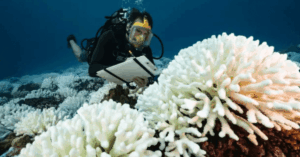
Underwater Salvage Begins To Stop Oil Leak From Sunken MSC Elsa 3 Off Kerala Coast
June 10, 2025
Gaza-Bound Ship With 12 International Activists Towed To Israeli Port Of Ashdod
June 10, 2025

This week, the French city of Nice is hosting the United Nations Ocean Conference, where global leaders, scientists, and organizations have gathered to ramp up action for ocean protection and research. UNESCO has announced an ambitious plan to expand its real-time ocean observation network by involving 10,000 commercial vessels by 2035.
UNESCO, the United Nations agency responsible for ocean science, stated that continuous ocean monitoring is essential to tackle climate change, predict extreme weather, protect marine ecosystems, and improve safety at sea.
Over 2,000 vessels have already been fitted with scientific instruments that feed live data into the Global Ocean Observing System (GOOS). The new goal is to multiply that number five times within the next decade.
The organisation is calling on shipping companies and governments to support this large-scale effort. The instruments being installed on ships are capable of collecting and transmitting meteorological and oceanographic data in real time.
Audrey Azoulay, Director-General of UNESCO, has called for massive investment in ocean science, pointing out that less than 2% of national research budgets are currently allocated to this field.
She described the ocean as “the greatest scientific adventure of our time” and said that the international community can no longer afford to ignore repeated warnings from scientists.
Azoulay is urging countries to commit to stronger support for marine research, which is central to the goals of the UN Decade of Ocean Science for Sustainable Development (2021–2030). This initiative, led by UNESCO, has already enabled over 700 projects globally with a combined budget of $1.5 billion.
UNESCO is also working to increase high-resolution seabed mapping, which it says is the foundation for all marine knowledge. Accurate seabed maps are critical for tracking climate change effects, forecasting natural disasters, managing marine resources, and preserving biodiversity.
Together with the International Hydrographic Organization and supported by the Nippon Foundation, UNESCO has helped raise seabed mapping coverage from less than 6% in 2017 to 26.1% in 2024.
However, UNESCO says that about 25% more seabed data is still held by public and private entities. Making these datasets publicly available could significantly boost global research. Countries including Canada, Monaco, Germany, Norway, and Portugal, along with various international and private organisations, are expected to announce new commitments to share this data on UNESCO’s open-access mapping platform in Nice.
UNESCO has also developed a standardised environmental DNA (eDNA) sampling method to support biodiversity monitoring. This technique allows rapid and affordable identification of thousands of marine species by analysing genetic material found in water samples.
Since 2021, the program has run a pilot phase in 21 UNESCO marine World Heritage sites, identifying nearly 4,500 species from 500 water samples. It now plans to expand this work by collecting 2,500 samples across 25 UNESCO marine sites, five times more than in the pilot phase.
These eDNA missions involve UNESCO experts, scientists, volunteers, teachers, and students, and take place in areas recognised as World Heritage Sites or Biosphere Reserves.
The UN Ocean Conference is being jointly hosted by France and Costa Rica, and has brought together more than 50 heads of state and government officials. Several prominent leaders are using the platform to call for stronger cooperation and urgent action to protect the oceans.
Arsenio Dominguez, Secretary-General of the International Maritime Organization (IMO), also attended the event and called on the international community to renew global commitments to protect marine environments. He said the ocean is a shared responsibility and urged governments, industries, and civil society to step up.
“This is our ocean, our obligation – and our opportunity,” he said.
French President Emmanuel Macron, speaking in Monaco at the close of a forum on the blue economy and marine finance, reiterated this urgency. He said that the science is clear and now is the time to act. Macron pointed out that sustainable fishing, sustainable shipping, and sustainable tourism are not just possibilities, they are necessities.
Reference: UNESCO
Source: Maritime Shipping News


